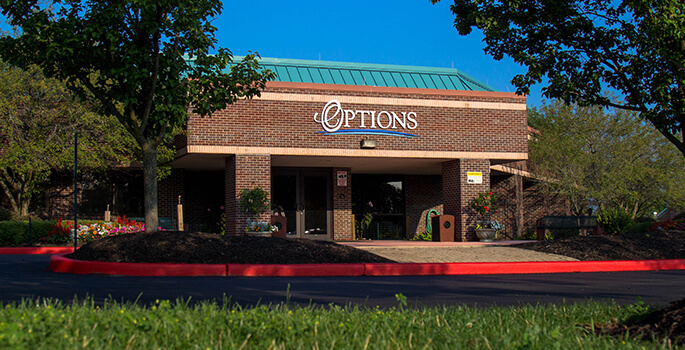Understanding the signs, symptoms, causes and effects of addiction is an important first step toward healing and recovery.
Understanding Addiction
Learn about addiction and substance abuse
Substance abuse, also called “drug abuse,” refers to a pattern of harmful or hazardous use of psychoactive substances, including alcohol and illicit drugs. Psychoactive substance use can lead to physical and psychological dependence. Dependence refers to a cluster of behavioral, mental, and physical symptoms that develop after chronic drug use that generally include a strong craving to take the drug, difficulties in controlling drug use, and persisting in drug abuse despite the harmful consequences. Drug abuse often causes a user to offer a higher priority to drug use than to other social, occupational, interpersonal, and scholastic activities and obligations. Repeated drug abuse leads to increased tolerance of the drug – needing more and more of the substance to achieve the same effects— drug addiction, and a withdrawal state if the drug use is abruptly discontinued.
People try drugs for a number of reasons – out of pure curiosity, to have some fun, or because peers are using drugs. Many use substances as a way to ease another problem such as emotional distress, stressful situations, or to self-medicate the symptoms of a mental illness such as depression or anxiety. Drug use doesn’t always lead to drug addiction and dependence, and it can be challenging to ascertain when drug use has crossed the line into problematic addiction. The most tell-tale sign that drug use has become problematic is when the drug use begins to cause problems at home, work, school, in your social life, or your health and this is when treatment may be necessary.
Statistics
Addiction statistics
According to the National Survey on Drug Use and Health (NSDUH) conducted by the Substance Abuse and Mental Health Services Administration (SAMHSA) in 2011 it was determined that the usage of illegal drugs in the United States was on the rise. In 2011, it was estimated that 22.5 million individuals (or 8.7% of the population) over the age of 12 had abused an illegal drug or abused a prescription drug in the month prior.
Causes and Risk Factors
Causes and risk factors for addiction
It can be hard to ascertain why one individual becomes addicted to a drug while another does not. Researchers believe that addiction is not based upon one single cause, but rather a number of factors working together. Most common causes for substance abuse include:
Genetic: While unclear which genes are responsible, it is known that addiction has a genetic component. Individuals who have a family history of addiction – especially by a close relative – are more likely to develop an addiction themselves.
Brain Chemistry: Researchers believe that some individuals may be born lacking proper amounts of neurotransmitters responsible for pleasure. In response to this inborn deficiency, some individuals may turn to drugs to induce feelings of pleasure.
Environmental: Individuals born into homes in which addiction runs rampant are more likely to grow to develop a substance abuse disorder. Additionally, those who begin to abuse substances at an early age are more likely to develop an addiction later in life.
Psychological: Many individuals struggle with under treated or undiagnosed mental illnesses. These people may turn to substance abuse as a means to self-medicate the symptoms of their mental illness.
Signs and Symptoms
Signs and symptoms of addiction
The symptoms of substance abuse will vary depending upon the substance, the individual’s genetic makeup, the length of abuse, and the frequency of abuse. Some of the common symptoms of drug abuse may include:
- Mood swings
- Anxiety
- Depression
- Irritability
- Euphoria
- Periods of hyperactivity
- Agitation
- Trouble in interpersonal relationships
- Decreased motivation
- Appearing to be intoxicated
- Neglecting responsibilities at home, work, or school
- Withdrawing from previously-pleasurable activities
- Legal problems
- Using drugs under risky conditions
- Unexplainable need for money
- Borrowing or stealing money or valuable possessions from others
- Sudden changes in friends, hangouts, and hobbies
- Loss of control over drug use
- Using the drug to relieve withdrawal symptoms
- Blackouts
- Drop in work or school attendance
- Deteriorating physical appearance
- Inattention to personal grooming habits
- Loss of self-control
- Worsening of medical conditions
- Physical dependence upon drugs
- Withdrawal effects if drug is discontinued
- Infections
- Changes in sleep or appetite
- Bloodshot eyes
- Pupils smaller or wider than usual
- Lethargy
- Decreased respiration rate
- Psychological dependence
- Worsening of mental illnesses
- Intense preoccupation with drugs, obtaining more drugs, and using more drugs
- Continued drug use despite negative consequences
- Paranoia
- Hallucinations
- Changes in personality or attitude
- Violent, angry outbursts
- Fearfulness
- Aggressiveness
Effects
Effects of addiction
The effects of addiction and abuse of drugs can be all-encompassing, leaving virtually no part of an addict’s life untouched. While the effects of chronic drug abuse will vary among individuals, the most common effects of drug abuse may include:
- Addiction
- Tolerance
- Changes in the structure or functioning of the brain
- Unintentional injuries
- Accidents
- Damage to all organ systems in the body
- Weakening of immune system
- Increased infections
- Cardiovascular complications
- Nausea, vomiting, and abdominal pain
- Liver damage and/or failure
- Seizures
- Strokes
- Heart attacks
- Impaired decision-making
- Permanent brain damage
- Worsening of emotional wellbeing
- Increasing medical problems
- Legal problems
- Incarceration
- Financial ruin
- Crumbling interpersonal relationships
- Divorce
- Child abuse
- Domestic abuse










